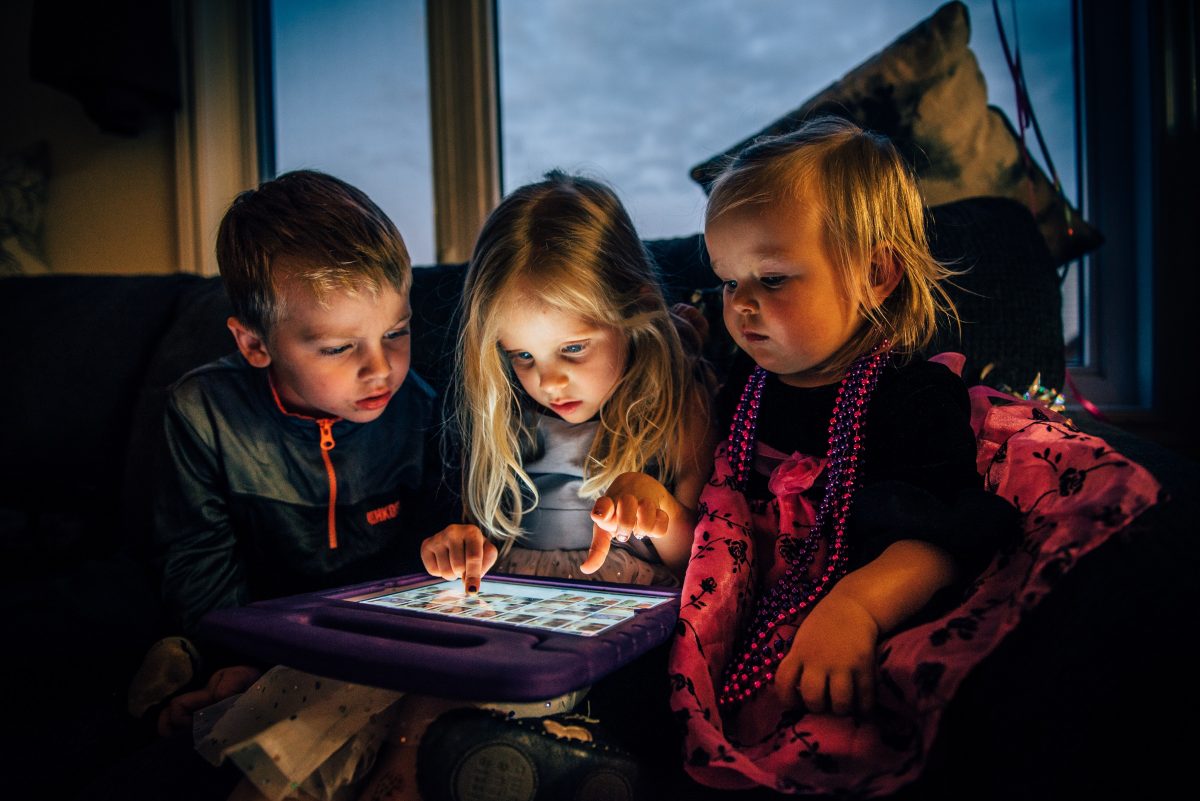
Screen Time Impairs Children’s Language Skills
Dr. Ananya Mandal, MD via News-Medical Net – A new study looks at the time spent by kids looking at a screen and the development of their language skills. The team writes that there have been several studies that have found an adverse relationship between the two and this study is a collation of the data that exists from these studies.
The study titled, “Associations Between Screen Use and Child Language Skills A Systematic Review and Meta-analysis,” was published in the latest issue of the journal JAMA Pediatrics.
What Is the Study About?
The team of researchers from the University of Calgary, Alberta Children’s Hospital Research Institute, and Seattle Children’s Hospital Research Institute, University of Washington, Seattle collaborated to look at the studies that have researched the association of screen use among kids and their language development.
They wrote that there had been a debate on the amount of time kids spend before the screen and their development.
Over the last decade, they wrote, more and more children have access to digital media, and their consumption of the same is also on the rise. Many studies report that screen time is usually measured in terms of quantity and quality.
Quantity of Screen Time
Quantity of screen use includes hours per day or week. This quantity of time spent before the screen could be sedentary behavior or passive watching. They explain that this would hamper the critical learning opportunities that are needed for the growth and development of the children. One of these includes language development.
When the child is exposed to the screens, they are not exposed to verbal exchanges that can help promote language skills and communication development.
Quality of Screen Time
Quality of time spent before the screen includes co-viewing or context of the viewing and content quality such as education content viewing etc. Some of the quality of content viewing, including educational content, can help augment the development of language skills in children.
The authors wrote that several marketing claims from the makers of these content claim that these could help enhance the intellectual capacities of the child. There is no concrete evidence regarding this benefit, they wrote.
What Was Studied?
This study looked at three components of kids’ screen viewing;
- Quantity of use or hours of screen time and background television
- Quality of use or educational and co-viewing
- Age at the onset of screen exposure
What Do Experts Recommend?
The American Academy of Pediatrics recommendations states that there should be no screen exposure before the age of 18 months, and children between ages 2 and 5 years should view not more than 1 hour of high-quality programming per day.
They also suggest that co-viewing is recommended for these children. Children aged over six years should have limited quantity and quality of screen exposure.
What Was Done in the Study?
This study looked at other studies that assessed an association between quantity and quality of screen exposure and the development of language skills in children. For this study, they found 42 suitable studies between 1960 and March 2019. In all the studies, the children included were less than 12 years of age.
Preverbal language assessment, receptive, or expressive language, was looked at. For each of the studies they looked at participants age, sex, study publication year, quantity or quality measures of the study and the study design
What Was Found?
A total of 18 905 participants were included in the 42 studies. The average age at which screen use was measured was 35.7 months, and the average age at which language skills were measured was 44.4months.
Children who had more extended hours of screen time had lower language skills. There were 50.2 percent male children among the participants.
Children with more extended background television also had weaker language skills. Better quality of screen use, including watching educational programs and co-viewing, was associated with more persuasive language skills. If the kids began watching screens later, they had more persuasive language skills, the study noted.
Conclusion, and Implications
The researchers wrote in recommendations, “The findings of this meta-analysis support pediatric recommendations to limit children’s duration of screen exposure, to select high-quality programming, and to co-view when possible.”
They added, “greater quantity of screen use (ie, hours per day/week) was negatively associated with child language, while better quality of screen use (ie, educational programs and co-viewing with caregivers) were positively associated with child language skills.” The team recommends that despite the benefits offered by educational content viewing and co-viewing, they need to be in moderation.
The team says, “It will be important in future research to identify which components of screen time viewing aremost beneficial vs detrimental for child language (eg, interactive apps, computer use, or video streaming) and to examine the potential role of co-viewing, media multitasking, and household media rules on children’s outcomes.”
To read the original article click here.






